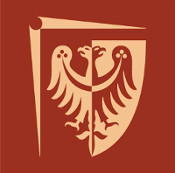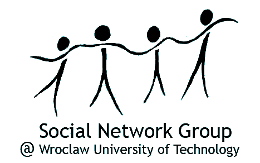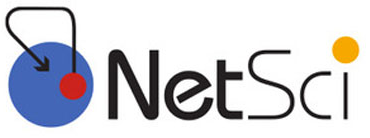Multiple Network Modeling, Analysis and Mining2nd Edition - Satellite Symposium at NetSci2014Berkeley, California - Clark Kerr Campus of the University of California Monday, June 2nd, 2014: Starting @ 9AM - Ending @ 6PM. DescriptionA complex network is a model used to represent complex interacting phenomena such as social interactions among human beings, biological reactions in organisms and technological systems. Complex networks have been widely used by scholars from different fields to tackle a large number of real-world phenomena. Some important milestones in the recent scientific scenario, such as the ubiquitous emergence in different natural phenomena of small-world and scale-free structures, come from complex network analysis.Real-world phenomena may require very rich representations. For example, the entities under study may relate to each other for different reasons. In this case, complex networks considering only one kind of interaction are not sufficient anymore, and network scholars developed Multiple Network models. Multiple Networks are networks in which the nodes may be connected through different relations. Let us consider the case of a social network. At the present day, a person can establish a social relation with hundreds of different people. Are all these people "friends"? Is it possible to organize all these relationships in the same class? Of course not: we have relatives, sentimental relationships, work mates and several different reasons, and degrees, to call the people we know "friends" or "acquaintances". Such complex models demand an interdisciplinary approach. As the nature of these structures is multidimensional, also a multidimensional mind nexus is required to fully understand them. With this idea in mind, we open this symposium to network scientists from a disparate background set: from computer science to art history, from physics to economics. This symposium aims to be a starting point of an unified, interdisciplinary community focused on the study of multiple networks. ProgramSession I9.00 - 9.30 Registration / Set Up 9.30 - 9.50 Introduction: Welcome from the organizers, presentation of the program 9.50 - 10.30 Keynote I: Frank Schweitzer, Professor for Systems Design at ETH Zurich Analysing temporal bipartite social networks 10.30- 11.00 Coffee Break Session II11.00 - 11.40 Keynote II: Renaud Lambiotte, Associate Professor, Department of Mathematics at University of Namur Non-Markovian Models of Networked Systems 11.40 - 12.00 Daniel Romero, Nina Mishra and Panayiotis Tsaparas Estimating the Relative Utility of Networks for Predicting User Activities 12.00- 13.30 Lunch Session III13.30 - 14.10 Keynote III: Nitesh Chawla, Associate Professor, Department of Computer Science & Engineering at the University of Notre Dame Predicting links in heterogeneous social networks 14.10 - 14.30 Katherine Ognyanova, David Lazer, Michael Neblo, Brian Rubineau and William Minozzi Ties that bind across contexts: personality and the evolution of multiplex networks 14.30 - 14.50 Neave O'Clery A Multi-slice Approach to Understanding the Evolution of Industrial Complexity and Growth 14.50 - 15.30 Coffee Break Session IV15.30 - 16.10 Keynote IV: Mason Porter, Associate Professor at the Oxford Centre for Industrial and Applied Mathematics Mathematical Formulation of Multilayer Networks 16.10 - 16.30 Seungkyu Shin, Sebastian Ahnert and Juyong Park Degree-Neutralizing Weighted Random Walk Ranking in Competition Networks 16.30 - 16.50 Tomasz Kajdanowicz, Adrian Popiel, Marcin Kulisiewiecz, Przemysław Kazienko and Bolesław Szymański Node classification in multiplex networks 16.50 - 17.10 Francesco Sorrentino Stability of the synchronous solutions for networks with connections of different types 17.10 - 17.30 Andreas Joseph, Irena Vodenska, Eugene Stanley and Guangron Chen MLR Fit-Networks: Global Balance of Payments Conclusion and final announcements17.30 - 18.00ContributionsWe invite you to submit a 300 word abstract including one descriptive figure by April 14, 2014 using our EasyChair submission link: https://www.easychair.org/conferences/?conf=mnam2014Contributors will be selected using a review process managed by the organizers. Any topic that can be covered using a multiple network is welcome. We encourage people from fields like computer science, physics, mathematics, humanities, sociology, visualization and design to submit their work. Organizing committeeGuido Caldarelli, IMT LuccaMichele Coscia, Harvard University Przemyslaw Kazienko, Wroclaw University of Technology Matteo Magnani, Uppsala University Dino Pedreschi, University of Pisa and KDDLab, CNR Luca Rossi, IT University of Copenhagen The event has been funded by the Social Network Group @ Wroclaw University of Technology, under the ENGINE project. AttendanceAttendance to our symposium is free of charge. However, you must register to NetSci to attend, at least for NetSci's satellites. For the NetSci2014 registration fee and deadline please see: NetSci Registration.As space is limited, we enocourage you to notify us that you are coming by subscribing to our GoogleDoc. About NetSciThe International Conference on Network Science 2014, NetSci2014, in Berkeley, California, from June 2nd to 6th, 2014 focuses on interdisciplinary research on networks from various disciplines such as economy, biology, medicine, or sociology, and aims to bring new network analytic methods from physics, computer science, math, or statistics to the attention of a large and diverse audience.Links2013 Edition of the MNAM satellite.ENGINE project. ContactIf you have any question or remark, please drop us an e-mail at mnam@isti.cnr.it. |
Sponsors
 | |
 | |
 |
Organization
 |
 |
 |
 |
 |
 |

